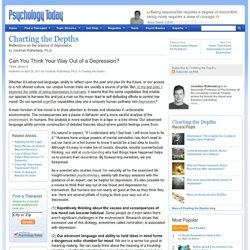

Seven Good Things About Feeling Bad.
Beating Boredom. The One Social Skill that Can Change Your Life. Rationality in Action: Look at a Problem as an Outsider. Sheena Iyengar: How to make choosing easier. Risk Intelligence: How to live with uncertainty. How to Be Prepared When Worry Attacks. What Underlies Physician Compassion? Every day I work with physicians. I interview them, write with them and edit for them. How Memory Works: an Infographic. For our blog’s sections on ‘Your Brain‘ and ‘Test Prep‘, we’re always on the lookout for great articles, videos and charts on memory and retention.

By helping you understand how our brains work, we want to allow you to try different approaches to studying that will hopefully help you become better learners for life. Over time, we’ve compiled articles on brain foods, how motivation and memory works, methods for better retention, … If we take a look at the sum of all articles and areas of interest, it seems obvious that there should be one chart that combines all of these elements that make up and influence our memory. Thanks to onlinecolleges.com, there now is. Dr. Think of Yourself in the Third Person.
¿Dios es real o sólo un amigo imaginario? Neurólogos daneses realizan controversial hallazgo. Si perteneces al amplio grupo de personas que se definen cristianas, la ciencia tiene una buena y una mala noticia para ti.

La buena, es que un equipo de neurólogos de la universidad Aarhus en Dinamarca, pudo demostrar empíricamente cómo el cerebro se “ilumina” al momento de rezar. Esto lo lograron midiendo la actividad cerebral de un grupo de cristianos, identificando 4 áreas comprometidas mientras se comunicaban con Dios. La mala sin embargo, es que el equipo también confirmó que las áreas del cerebro con mayor flujo sanguíneo durante la oración son exactamente las mismas utilizadas al hablar con otra persona.
Es decir, para nuestros cuerpos rezar es una actividad tan mundana como conversar con el vecino o con un amigo, al menos desde el punto de vista médico, consigna CBC News. Researchers find thinking in a foreign language causes people to make more rational decisions. (Medical Xpress) -- While at first glance it might seem irrational, researchers from the University of Chicago have found that people who speak two languages tend to make more rational decisions when thinking in their non-native tongue.

They came to this conclusion after conducting a series of experiments, the results of which they have published in a paper in the journal Psychological Science. Intuitively, most people would assume that it shouldn’t matter which language a person is thinking in when making a decision, but the research team found just the opposite to be true, and they theorize that it’s because when people think in a language that takes more effort, they tend to be more analytical and less emotional when faced with making a choice.
To find out if their idea was sound, they conducted several experiments. To make sure their results were sound, the team conducted several variations on this experiment and found nearly identical results. The Foreign-Language Effect. Nuevo estudio afirma que evitar que las personas piensen favorece las ideas políticas de derecha. Luego de que en febrero un exhaustivo estudio publicado en el “Journal of Psychological Science” encendiera la polémica al afirmar que las personas de derecha, con pensamiento conservador, están ligadas a una menor inteligencia incluso detectable durante la niñez, un nuevo trabajo académico atrae controversia sobre las motivaciones de los sectores políticos.
Esto porque según un estudio de la Universidad de Arkansas, el pensamiento conservador de derecha está vinculado al pensamiento del “mínimo esfuerzo”, ya sea por las características de la persona o bien por la necesidad de entregar respuestas sin mayor elaboración. “La gente tiende a apoyar las ideas conservadoras cuando tiene que entregar una primera respuesta o una respuesta rápida”, señaló en un comunicado el doctor Scott Eidelman, a cargo del estudio. It’s a Fine Line between Narcissism and Egocentrism. We see the world from the inside out, a fact that leads everyone to be at least somewhat self-centered.

The technical term for this is "egocentrism. " As a cognitive bias , egocentrism refers to the natural restriction on our perception caused by the simple fact that we can only see the world from our perspective. It takes special effort to see the world from any perspective other than through our own eyes. The basic egocentrism built into our cognitive apparatus became an important part of Swiss psychologist Jean Piaget’s theory about child development .
In observing children describe the way a small table-sized model of a mountain might look to someone else, Piaget found that prior to the age of 8 or so, this seemingly easy task was surprisingly difficult. Although we all grow out of this stage of development, even adults find it difficult to overcome completely the cognitive type of egocentrism. Recipe for Representativeness. When ordinary people make judgments or inferences, they do not operate like a logician or statistician might. They fail to use some of the relevant information, and they fail to ignore other information that they should not use. Kahneman and Tversky (1974) argued that these departures from rationality arise because people rely on rules of thumb, or . Heuristics are not strictly rational because they guarantee that systematic errors will occur, and systematic errors are - in contrast to random errors - predictable.
Yet, heuristic judgments are better than doing nothing or guessing randomly. Random guessing is, it seems, just a lousy way of making judgments, but not as an irrational one because it does not produce systematic bias. Manufacturing Someone Perfect. The eponymous hero—or antihero—of Miguel de Cervantes’s idealizes his ‘princess’ to such an extent that it becomes comical. To emulate the knights-errant of old who fought battles to earn the affections of their true love, Don Quixote identifies a simple peasant girl called Aldonza Lorenzo, changes her name to the much more romantic and aristocratic sounding ‘Dulcinea del Toboso,' and then paints her in the most flattering terms possible—even though he has only ever seen her fleetingly and never spoken to her. Dulcinea barely exists, but the idea of her nonetheless keeps Don Quixote alive on his quest. Idealization involves overestimating the positive attributes of a person, object, or idea and underestimating the negative attributes; but more fundamentally, it involves the projection of our needs and desires onto that person, object, or idea.
‘Longing makes the heart grow deep.’ Love Big, Think Small. If you're like most people, you rode into married life on powerful waves of affection and intimacy that crashed occasionally into self-doubt and apprehension, only to rise again, stronger than ever.

In other words, you believed that you married for love. That was the easy part. Lots of research shows that love is more effective at bringing us together than keeping us together. You may have heard the saying, "Love is easy; relationships are hard. " The truth is relationships are hard love is easy. EP102934.pdf (objeto application/pdf) Can You Think Your Way Out of a Depression? Whether it's advanced language, ability to reflect upon the past and plan for the future, or our access to a rich shared culture, our unique human traits are usually a source of pride.

But, in my last post, I explored the riddle of rising depression in humans . It seems that the same capabilities that enable our species to harness fire and put a man on the moon lead to self-defeating efforts to control low mood. Do our special cognitive capabilities play into a uniquely human pathway into depression ? A main function of low mood is to draw attention to threats and obstacles in unfavorable environments. The consequences are a pause in behavior and a more careful analysis of the environment .
Mind42.com. Deep Rationality. {*style:<i> </i>*} Radical changes are in store when these two men are properly introduced to one another. Behavioral economics has become an increasingly popular topic over the last few years, as demonstrated by the success of a string of books like and .